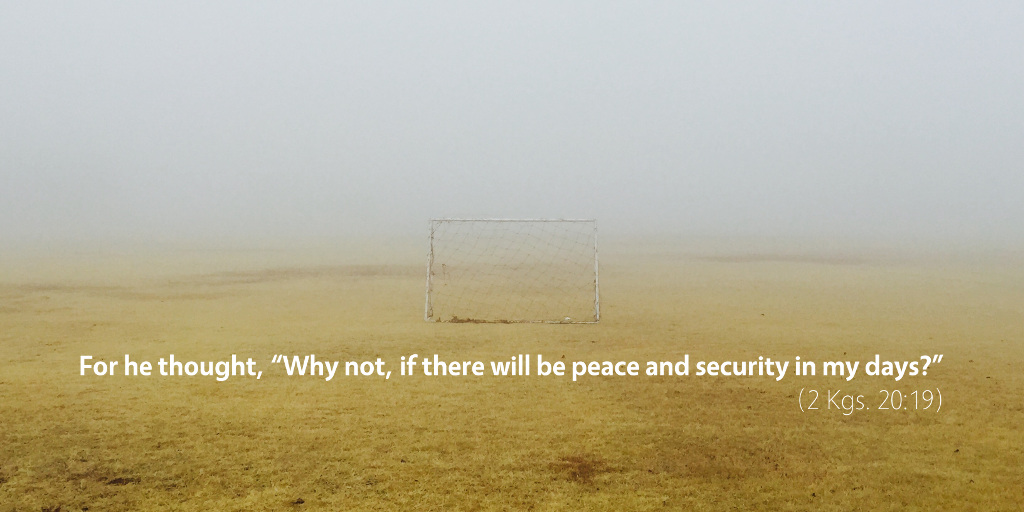Bible Readings for November 7th
2 Kings 20 | Hebrews 2 | Hosea 13 | Psalms 137–138
In 2 Kings 20, we see Hezekiah displaying two contradictory attitudes toward prayer—on the one hand, he prays fervently for God to save him, but on the other hand, he doesn’t even try to pray for the salvation of his descendants after him.
First, God again here relents from the disaster he promises to Hezekiah, as we have seen at several points in the history of God’s people (e.g., Ex. 32:14, Num. 16:50). It does not appear that Hezekiah had sinned in some way so as to incur God’s judgment but rather that Yahweh had shown him his looming death in advance so that Hezekiah could set his house in order (2 Kgs. 20:1). This doesn’t mean that Yahweh always turns from bringing about certain outcomes—even Jesus prayed three times unsuccessfully that he not have to go to the cross (Matt. 26:44)—but when God prompts us to turn to him in prayer, he has a way of reassuring us that his grace is sufficient for us, and that his power is made perfect in our weakness, even when we continue to suffer (2 Cor. 12:9). In the matter of seeking mercy for himself, Hezekiah entrusts himself fully to Yahweh and finds salvation.
In the second story in 2 Kings 20, however, Hezekiah does not come away looking so good. After Hezekiah shows all the glory of Judah to the envoys from Babylon so that “There was nothing in his house or in all his realm that Hezekiah did not show them” (2 Kgs. 20:13), Yahweh sends Isaiah to Hezekiah to promise him that all those things will be carried off by the Babylonians. There is much to discuss about why Hezekiah would give the Babylonians unfettered access to all of Judah’s glory, but today, we will simply focus on his selfish response once Isaiah delivers Yahweh’s word. Rather than repenting and asking Yahweh to relent from the disaster he had promised, we read that “Then said Hezekiah to Isaiah, ‘The word of the LORD that you have spoken is good.’ For he thought, ‘Why not, if there will be peace and security in my days?’” (2 Kgs. 20:19). Where Hezekiah had sought Yahweh’s mercy in the matter of his own life, he now selfishly cares nothing for the welfare of the generations to come in Judah whom the Babylonians would carry into exile.
In prayer, God gives us the ability not only to advocate for our own safety and well being but also to intercede with God on the behalf of others so that we may bear their burdens. As Jesus went to the cross, he did pray for himself, but he also prayed for you who would believe in him based on the testimony of his apostles (John 17:20). How might Jesus reshape your prayers to be more like his and less like Hezekiah’s?
Podcast: Play in new window | Download (4.8MB) | Embed
Subscribe: Apple Podcasts | RSS | More

Scripture quotations are from The Holy Bible, English Standard Version copyright © 2001 by Crossway Bibles, a division of Good News Publishers. Used by permission. All rights reserved.


